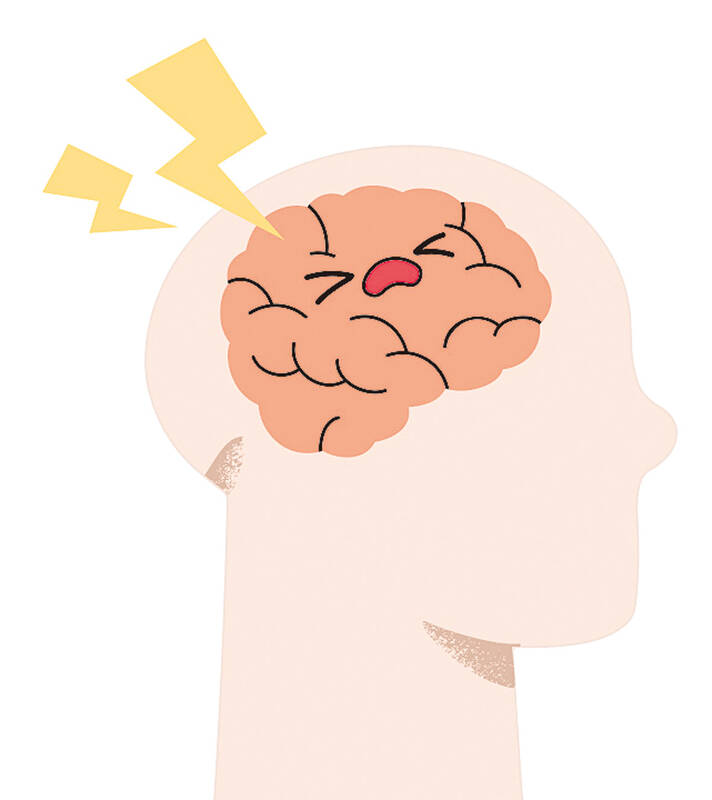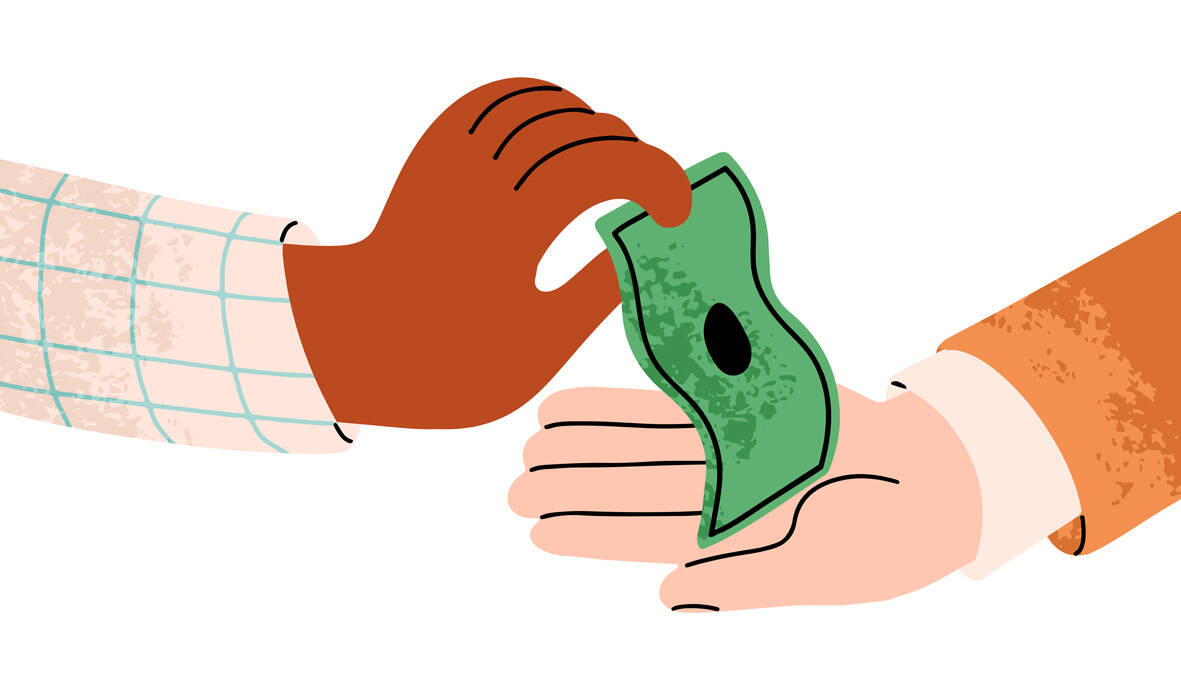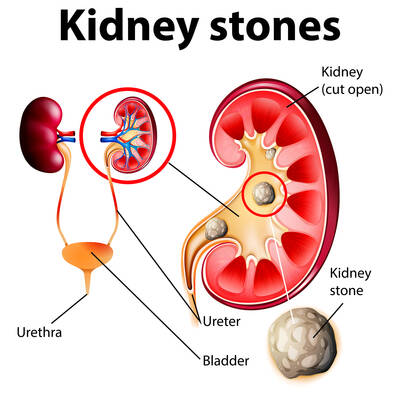Have you ever felt a sudden pang of discomfort after handing over cash? That sensation is known as the pain of paying, the emotional sting that __1__ when money leaves your hands. Neuroscientific studies suggest that this pain activates the insula, an area in the brain associated with physical pain and negative emotions.
This pain comes about because making a purchase forces people to __2__ the loss of financial resources, making the act of buying feel like a sacrifice. The pain intensifies under certain conditions. The more __3__ people are of the payment—its timing, amount, and method—the stronger the emotional discomfort. In essence, spending money can feel like some sort of __4__ act of self-harm, especially when the cost is clear and immediate.
According to research, the method of payment __5__ a significant role in shaping this pain. Paying with cash makes the transaction more salient and tangible, which heightens the sense of loss. In contrast, credit cards and digital payment systems __6__ this pain by creating a psychological distance from the act of spending. Since credit cards allow for __7__ payment, the emotional impact of a transaction can be diminished. Digital payments minimize the pain even further as the act of spending is nearly effortless and intangible.

Photo: AdobeStock: I 照片: AdobeStock
This psychological mechanism affects not only how much people spend but also how much they __8__ what they buy. A higher pain of paying tends to promote more deliberate spending and greater post-purchase __9__, whereas seamless payments can lead to overconsumption and buyer’s remorse. Studies also show that consumers are willing to pay more for the same item when they use a card or app compared to cash.
Ultimately, the pain of paying proves how complex the __10__ between emotion and financial behavior really is. It reminds people that the convenience of modern payment systems comes with hidden costs. Understanding this will enable consumers to make more mindful financial choices.
你是否曾在付錢後突然感受到一陣不適?那種感覺被稱為付錢疼痛,是在錢錢離開你手上時會襲來的情感上的刺痛。神經科學研究顯示,這種疼痛會使島葉活化,而島葉是大腦中與身體疼痛和負面情感有關的區塊。

Photo: AdobeStock: I 照片: AdobeStock
會產生這種疼痛是因為買東西迫使人們正視失去金錢的狀況,使得購買的行為感覺起來像是犧牲。這種疼痛在特定的情況下會加劇。人們對付款愈是有意識──付款的時間、金額和方式 ── 這種情感上的不適就會愈強烈。本質上,花錢感覺起來有點像是輕微的自我傷害行為,尤其是花費很清楚又立即的時候。
根據研究,付款方式在形成這種疼痛方面扮演重大的角色。用現金付款讓交易更顯著且更有實感,這增強了失去的感覺。相反地,信用卡和數位支付系統藉由在花費行為上製造出心理上的距離感而降低了這種疼痛。因為信用卡可以延遲付款,所以交易帶來的情感衝擊就會被削弱。數位支付進一步將疼痛最小化,因為花費的行為幾乎毫不費力又無形。
這種心理機制影響的不只人們花費多少,還有他們對所購買的物品有多重視。付錢疼痛的程度愈高往往會讓花費更小心謹慎、購買後的滿意度愈高,而順利的付款可能會導致過度消費和買家的懊悔。研究也顯示,比起現金支付,消費者使用信用卡或應用程式時願意付更多錢來買相同的物品。
最終,付錢疼痛證實了情感和財務行為的互相影響實際上有多複雜。這提醒人們現代支付系統的便利伴隨著隱形的代價。理解這一點能讓消費者做出更明智的財務選擇。
What Did You Learn?
(A) reduce (B) interaction (C) minor (D) plays (E) value (F) satisfaction (G) confront
(H) delayed (I) aware (J) strikes
答案:1. J 2. G 3. I 4. C 5. D
6. A 7. H 8. E 9. F 10. B
Words in Use
1. sensation n. 感覺,知覺
After tasting the spicy dish, I felt a burning sensation on my tongue.
嚐完那道辛辣的菜餚後,我的舌頭感受到一股灼燒感。
2. activate vt. 使活化,啟動
You need to press the red button to activate the alarm system.
你得按下那顆紅色按鈕才能啟動警報系統。
3. purchase n. 購買(物∕行為)& vt. 購買
make a purchase 購買
My family always makes a big purchase during the holiday sale.
我們家總會在節日促銷期間買很多東西。
We purchased tickets for the concert in advance.
我們事先買了那場演唱會的門票。
4. intensify vi. 增強,加強
Competition among tech companies has intensified in recent years.
近年來,科技公司之間的競爭愈演愈烈。
5. transaction n. 交易
Colin completed the online transaction in just a few minutes.
柯林在幾分鐘之內就完成了那場線上交易。
Practical Phrases
1. hit sb (right) in the feels 觸動某人的內心
原指某人被強烈的感覺深深觸動,標題引申為付錢這件事深入地觸動到內心而產生心痛的感覺。
When the little girl hugged the firefighter to say thank you, it hit everyone right in the feels.
小女孩抱著消防員說謝謝時,觸動了每個人的內心。
2. hand over... / hand... over 交出……
The rebels refused to hand over their weapons despite multiple warnings.
儘管多次警告,叛亂分子仍拒絕交出武器。
3. come about 產生,出現
Accidents often come about when people ignore traffic rules.
意外常常在人們忽視交通規則時發生。
4. in essence 本質上
essence n. 本質,實質
The two theories bear different names. In essence, they express the same concept.
這兩個理論的名稱不同。本質上,它們表達的是相同的概念。
5. allow for N 使……成為可能
The system allows for real-time communication.
這套系統可以即時通訊。
聽文章朗讀及講解: https://ivy.pse.is/455bfu
本文出自常春藤解析英語雜誌: www.ivy.com.tw

Did you know that one in 10 people will develop kidney stones in their lifetime? These tiny, hard deposits can cause intense pain that sends even the toughest individuals to the emergency room. Kidney stones form when minerals and waste in urine become too dense. Normally, these substances are flushed out with the urine. However, if there’s not enough water in the body, or the levels of these substances are too high, they can cluster together and form crystals. Over time, these crystals can grow into hard lumps that may block the flow of urine. The primary symptom is

With the pace of climate change speeding up, extreme weather and other impacts are taking an increasing toll on populations and environments across the globe. Here are some of the developments this year in climate science: WARMER, FASTER Global temperatures are not just climbing, they are now climbing faster than before, with new records logged for 2023 and 2024, and at points in 2025. That finding was part of a key study in June that updated baseline data used in the science reports done every few years by the Intergovernmental Panel on Climate Change. The new research shows the average global

When we hear the word honeymoon, most of us probably think of newlyweds relaxing on a beach or exploring a romantic city. It’s that sweet, exciting period right after the wedding and before real life kicks in. While it sounds modern, this word has a surprisingly long history. Some __1__ believe the term honeymoon comes from Old English, way back in the Middle Ages. One theory is that it refers to the “Mead Moon” or “Honey Moon,” both of which were once synonymous with June. During this time, honey was __2__ after bees had gathered nectar throughout the spring.

A: The 62nd Golden Horse Awards ceremony is set for next weekend. So what are the nominees for Best Narrative Feature? B: The nominees are: A Foggy Tale, The Waves Will Carry Us, Left-Handed Girl, Queerpanorama and Mother Bhumi. A: What about the nominees for Best Leading ActorActress? B: Richie Koh, Will Or, Joseph Chang, Chang Chen and Lan Wei-hua are nominated for Best Leading Actor. Caitlin Fang, Rene Liu, Ariel Lin, Alexia Kao and Fan Bingbing are nominated for Best Leading Actress. A: It’s a shame that many of those movies haven’t even been released yet. Meanwhile, some blockbusters won zero nominations this